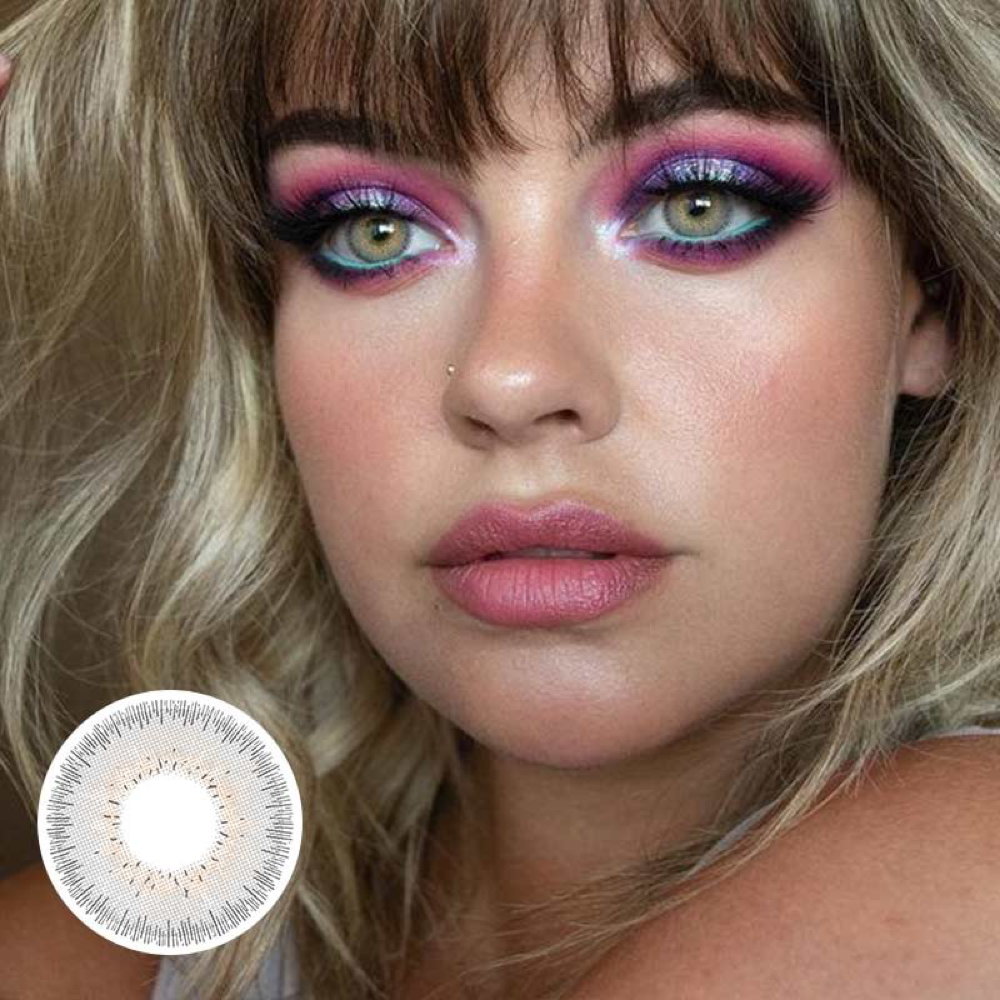What is the difference between prescription and contact lenses?
Jun 16, 2023
Prescription lenses and contact lenses serve the same purpose of correcting vision, but they differ in their form and usage.
Prescription lenses, also known as eyeglasses or spectacles, are lenses that are mounted in frames and worn on the face. They consist of a pair of lenses that are customized to address specific vision problems, such as nearsightedness (myopia), farsightedness (hyperopia), astigmatism, or presbyopia (age-related difficulty in focusing on close objects). The eye contacts lense in prescription glasses are usually made of glass or plastic and are designed to correct the refractive errors of the eyes. They can be easily removed and put on whenever needed.
On the other hand, contact lenses are thin, curved discs that are directly placed on the surface of the eye. They are typically made of soft, breathable materials or rigid gas-permeable materials. Contact lenses provide vision correction by precisely focusing light onto the retina, similar to prescription glasses. However, they have the advantage of offering a more natural field of view since they move with the eye. Contact lenses require a proper fitting by an eye care professional to ensure a comfortable fit and optimal vision correction. They also need regular cleaning and maintenance to prevent eye infections.
Smokey Prescription Contact Lenses Natural Wearing 14.2mm
Both prescription glasses and contact lenses are prescribed by eye care professionals, such as optometrists or ophthalmologists, after conducting an eye examination and determining the specific vision correction needs of an individual. The choice between glasses and contacts often depends on personal preferences, lifestyle, and ocular health. Some individuals may opt to use both glasses and contact lenses, using glasses as their primary correction and contact lenses for specific activities or occasions.
Here are a few more points of comparison between prescription glasses and contact lenses:
-
Convenience: Contact lenses offer greater convenience for those who engage in sports or physical activities, as they provide a wider field of view and freedom of movement compared to glasses. They are less likely to get in the way during sports, and they don't fog up or get splattered with raindrops like glasses. However, contact lenses require regular cleaning and maintenance, and they need to be inserted and removed from the eyes, which may not be suitable for everyone.
-
Aesthetics: Some individuals prefer the aesthetics of wearing contact lenses over glasses, as they provide a more natural appearance. contact lenses online don't obscure the face or obstruct facial features, which can be appealing to some people. On the other hand, glasses can be considered a fashion accessory and offer various styles and frames to complement one's personal style.
-
Comfort: While both glasses and contact lenses should provide comfort, some people may find one option more comfortable than the other. Wearing glasses may be more comfortable for individuals who have sensitive or dry eyes, as the lenses do not directly touch the eyes. Contact lenses, if properly fitted, can also be comfortable, but some individuals may experience dryness, irritation, or discomfort from wearing them for extended periods.
-
Vision correction range: Contact lenses can correct a wider range of vision problems compared to glasses. They can address conditions like high astigmatism and certain irregular corneal shapes more effectively. However, some complex or severe vision conditions may still be better corrected with specialized glasses or other vision correction methods.
-
Eye health considerations: Both glasses and contact lenses have their respective impacts on eye health. Wearing glasses does not directly touch the eye's surface and is generally considered a safe option. prescription contacts lenses, however, require diligent hygiene practices to minimize the risk of eye infections. Improper care or extended wear of contact lenses can lead to complications such as dry eyes, corneal ulcers, or conjunctivitis. It is important to follow the guidelines provided by the eye care professional for safe and healthy use of contact lenses.
Ultimately, the choice between prescription glasses and contact lenses depends on individual preferences, lifestyle, comfort, and specific vision needs. Consulting with an eye care professional can help determine the most suitable option for your particular situation.

